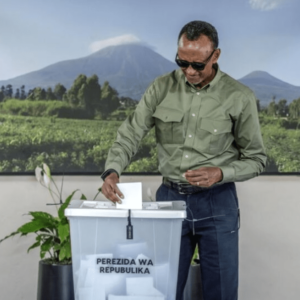Three months before the US presidential elections, Citigroup has announced that it will end its operations in Haiti due to the ” weak demand from institutional clients and declining international banking activities”thus ending a presence of more than fifty years in the country, today prey to the “planned” violence of terrorist gangs.
Citigroup, also known as Citi, was founded in 1812 in New York as the City Bank of New York. It is one of the oldest financial institutions in the United States.
It is one of the world’s largest financial institutions, operating in more than 160 countries and jurisdictions. It provides a broad range of financial services to consumers, businesses, governments and institutions.
It is principally engaged in the areas of retail banking, investment banking, asset management, commercial banking and consumer financial services.
The company is organized into several principal divisions, including Citibank (retail and commercial banking), Citi Global Wealth Management (wealth management), Citi Institutional Clients Group (investment banking and markets), and Citigroup Holdings (asset and risk management).
It plays an active role in corporate social responsibility (CSR) through various programs and initiatives aimed at supporting local communities, promoting sustainability and financial inclusion.
Established in Haiti for over 50 years, it generally plays the following roles:
1. International Trade Facilitation: Citigroup facilitates international trade by providing banking services to local and foreign businesses. This includes trade finance, cross-border payment processing and risk management related to currency fluctuations.
2. Local Financial Sector Development: Citigroup contributes to the development of the local financial sector by introducing advanced banking practices, innovative financial products and international governance standards. This may include training local staff and building the capacity of local financial institutions.
3. Support for Institutional and Individual Clients: As an investment and retail bank, Citigroup provides financial services to large corporations, financial institutions, governments and individuals. This may involve advice on mergers and acquisitions, project finance, wealth management and personal banking.
4. Social Commitment and Corporate Responsibility: Citigroup often engages in corporate social responsibility (CSR) initiatives in the countries where it operates. This includes programs to support education, healthcare, financial inclusion and sustainable development at the local level.
CitiGroup has a fairly good relationship with the Republican Party in the United States, influencing and being influenced by the party’s policies and political positions on economic and financial issues.
In particular, relations between Citigroup and former President Trump are generally very good.
Citigroup has been involved in financing various projects and businesses related to Donald Trump before and during his presidency. This includes significant loans for real estate projects and other business ventures associated with Trump.
Citigroup advisers have advised Trump on economic and financial matters throughout his political career. That advisory relationship has at times influenced economic policies promoted by the Trump administration.
Citigroup has engaged in lobbying activities in Washington, DC, including on financial and banking issues that have impacted the policies of the Trump administration. This includes efforts to influence financial legislation and regulations.
There have been personal ties between some Citigroup executives and Donald Trump, often through social circles or professional associations. These relationships have sometimes been criticized as potentially influential on policy and regulatory decisions.
Now that Citigroup is set to close its operations in Haiti, many are asking what is in store just months before the next U.S. election?
What could be the real reasons for Citibank’s announced withdrawal from Haiti at a time when Trump is facing Biden in a presidential election whose outcome is uncertain?
Citigroup’s withdrawal from Haiti may be motivated by several reasons:
1. Insufficient profitability: If operations in a country do not generate enough revenue to be profitable in the long term, Citigroup may decide to withdraw and focus its resources on more lucrative markets.
2. High Political Risk: Political instability, unpredictable regulatory changes or geopolitical risks may make the operating environment too uncertain or risky for Citigroup.
3. Intense competition: Strong local competition or the inability to differentiate effectively in the market may make it difficult for Citigroup to maintain profitable market share.
4. Compliance and regulatory issues: Ongoing challenges with local regulatory compliance may result in high costs and operational constraints, prompting Citigroup to exit.
5. Global Strategic Change: A reassessment of Citigroup’s global strategy could lead to a refocusing on regions or market segments deemed more strategic or with high growth potential.
6. Economic weakness of the country: A weak or recessionary local economy may negatively affect Citigroup’s financial performance in that country, leading to a withdrawal to minimize losses.
7. Ongoing operational challenges: Operational challenges such as underdeveloped infrastructure, logistical problems or difficulties in recruiting and training qualified personnel may make it difficult for Citigroup to maintain efficient and profitable operations.
These reasons show that Citigroup’s withdrawal from Haiti may result from a combination of economic, political, regulatory and strategic factors that influence the long-term viability of its operations in the country.
Celimene Fratus
Similar articles









